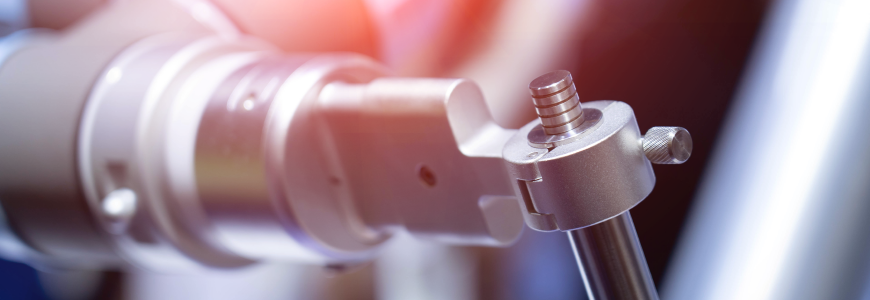Call the referring provider team Monday through Friday between 8:00 a.m. and 4:30 p.m. at 866-385-3123 (1-866-DUKE-123) or email OncologyReferral@Duke.edu.
Duke is the only center in the Southeast currently using a single-port robotic system for thoracic surgeries. “While the single-port robot has been used in other applications for some time, it’s more recently been FDA-approved for thoracic procedures. Single-port techniques can be favorable and effective for lung and mediastinal mass excisions, including anatomical pulmonary resections to treat lung cancer surgically,” says Matthew G. Hartwig, MD, lung transplant and thoracic surgeon.
Duke was one of the few sites participating in the national study that led to FDA approval for the single-port robot in thoracic surgery. “There are significant benefits to patients’ healing time and recovery,” adds Jacob A. Klapper, MD, lung transplant and thoracic surgeon.
Compared to multi-port systems, single-port requires only one small incision, allowing surgeons to avoid intercostal incisions. This results in much less postoperative pain and faster healing. “The pain patients experience by having to make incisions between the ribs is typically very uncomfortable and takes longer to heal. By avoiding this with the single port, patients experience a big improvement in quality of life,” says Hartwig.
The single-port system offers surgeons additional benefits, including better anatomical access and visualization during surgeries. Previous studies in South Korea have backed findings that single-port robotic surgical systems are safe and feasible for even complex thoracic surgery cases. These types of cases include early and more advanced stages of lung cancer, as well as larger mediastinal masses.
Epicenter for training, innovation
The Duke thoracic surgery team is poised to be the first "epicenter" for thoracic single-port robotic applications, offering training and courses to other thoracic surgeons nationwide. “We’re very comfortable using the single-port system in thoracic surgery for resections, having used it for complex anatomical lung resections, as well as mediastinal masses such as thymomas,” says Hartwig.
Hartwig and Klapper have performed over 2,500 total robotic thoracic procedures, including procedures using multiport systems.
As a site with expertise and experience in many robotic techniques, Duke is at the forefront of technology to innovate and adopt new strategies that benefit patients.
“Technology will continue to improve. “We’re committed to testing and adopting the most revolutionary technology and expanding indications for existing robotic technologies in thoracic surgery,” says Hartwig.
